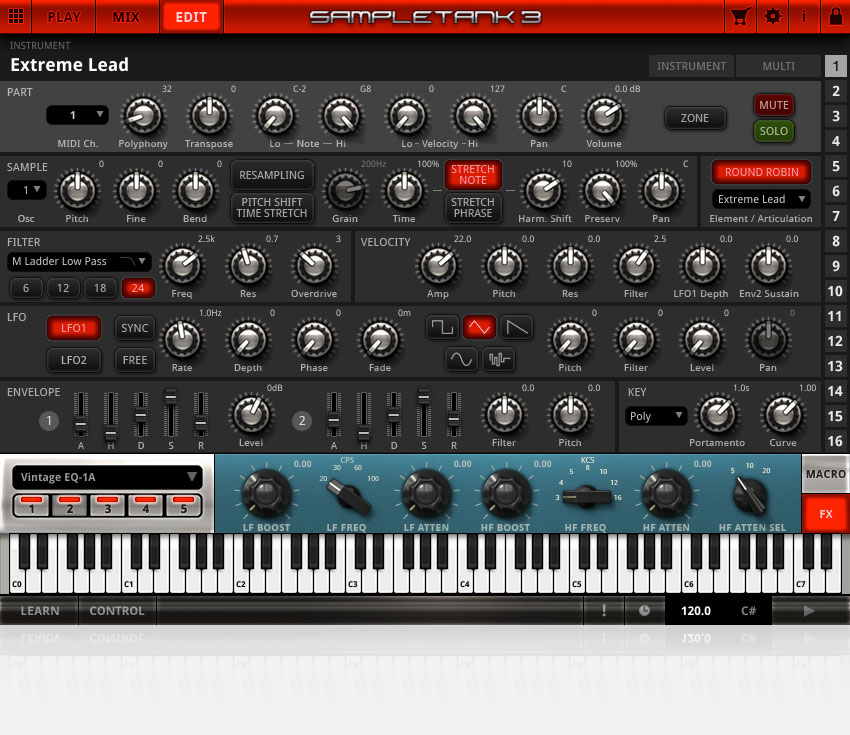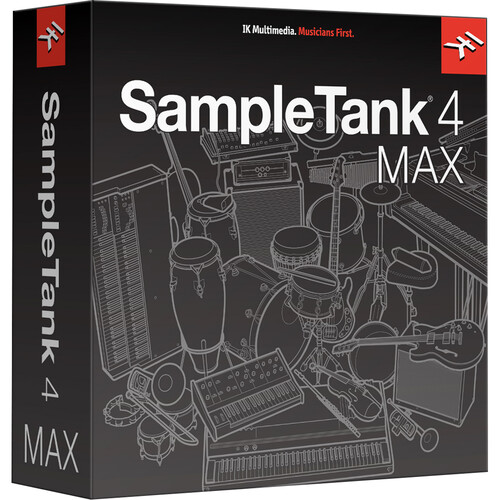

The Moog and Oberheim models feature high-pass, band-pass, low-pass and notch types (12dB/octave for the Oberheim, various slopes for the Moog), while the other two are 12/24dB low-pass only. Sounding phenomenal and supremely responsive, they’re without doubt among the best software filters we’ve ever heard. And with all four - as well as a 1/2/4/8-stage phaser, a formant filter and the ‘classic’ SampleTank filter - available to every instrument, you can shove, say, a multisampled Moog Taurus oscillator through a modelled Roland filter, or bolt the Oberheim SVF onto the Alesis Andromeda.

Of course, Syntronik’s 17 instruments aren’t full emulations of the original synths they represent. Sampletank 3 how to save instrument full# Every one of them has its own singular visual identity, but the actual interface comprises the same array of controls across the board, be they presented as knobs or sliders. The control set starts with tuning of the main oscillator, and activation and detuning of a second oscillator by up to 50 cents up or down.

The Filter section houses the filter model selection switches, along with knobs/sliders for cutoff, resonance, overdrive and velocity response.


 0 kommentar(er)
0 kommentar(er)
